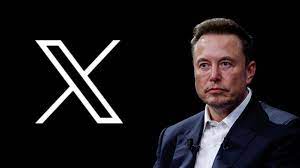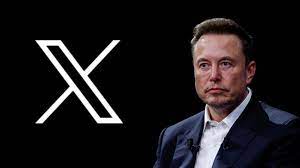
According to governance experts and analysts, Elon Musk's threat to develop robotics and AI outside of Tesla unless he gains greater voting power may violate his duties as CEO and cast doubt on the automaker's valuation.
The outspoken billionaire declared on Monday that unless he has roughly 25% of the company's voting power, he would be "uncomfortable" leading Tesla into a leader in the technologies.
"Enough to be influential, but not so much that I can’t be overturned. Unless that is the case, I would prefer to build products outside of Tesla," he said on his X social media.
Tesla's stock increased by almost 0.5 percent to $219.91, according to a new tab.
Musk, who has long referred to Tesla as a "AI/robotics company" because of the company's partially automated "Full Self-Driving" software and its humanoid robot prototypes, took a sharp turn with this decision.
"The problem is his tweets suggest that in his capacity now as CEO and director, he is not only turning down profitable Tesla opportunities based on his personal preferences, but also redirecting them to his private companies," said Ann Lipton, a professor at Tulane Law School.
"That's a conflict of interest that suggests a violation of his fiduciary duties to Tesla."
Additionally, some experts claimed that any attempt to relocate Tesla's technological development outside the company would only hurt its stock value by eliminating chances for expansion.
Neither Tesla nor Musk have any available comments regarding the matter.
A legal notion known as the corporate opportunity doctrine states that CEOs and directors are not allowed to seize any economic opportunity that belongs to the company for themselves.
"It would be illegal for him to go ahead with building technologies Tesla has touted without the company's permission," said Charles Elson, founding director of the Weinberg Center for Corporate Governance at the University of Delaware.
Musk, who holds a 13% share in Tesla and is the company's top investor, also has ownership stakes in SpaceX, Neuralink, X, and xAI, his most recent endeavour that aims to take on OpenAI, the manufacturer of ChatGPT.
However, in the last two years, he has lost some of his voting power at Tesla as a result of selling tens of billions of shares to fund his acquisition of the platform that was formerly known as Twitter.
If Musk exercises all of his stock options, his stake in Tesla would increase to approximately 23%, although he could need to sell some of them to cover exercise-related taxes.
"Musk is attempting to recover control that has been lost from his stock sales to fund Twitter," CFRA Research analyst Garrett Nelson said. "We view Musk's demands as posturing ahead of the Delaware court ruling regarding his prior compensation package."
The CEO of Tesla is awaiting a decision in a shareholder case that claims he took advantage of his power on the board to secure an enormous remuneration package that spared him from having to work for the electric vehicle manufacturer full-time.
If the court grants the investor Richard Tornetta's request to revoke the reward package, it may be difficult for the board to approve a new compensation plan of a comparable amount.
According to a 2022 estimate by executive pay research firm Equilar, Musk's compensation package exceeded the total compensation of the 200 highest-paid CEOs in 2021 by approximately six times.
Musk said on Monday that the discussions were being halted by the awaiting verdict and that there was no "feud" with the board over his new compensation plan.
Because of his prominence at Tesla and his personal relationships to several board members, including his brother Kimbal, some experts predict that the board will not be too hostile to his requests.
According to Xu Jiang, an associate professor at Duke University's Fuqua School of Business, "it is easier relative to other tech firms to push through such a demand because Tesla's board is generally tolerant of his erratic behaviour in the past."
"He will probably face stiff opposition from major shareholders such as Vanguard and BlackRock. My conjecture is that the opposition, if any, of the board members would stem from their concern of the opposition from shareholders."
According to analyst Ryan Brinkman of J.P. Morgan, Musk's most recent remarks increase the likelihood that he will step down as CEO or that he would be awarded shares that will dilute investors' ownership. He went on to say that it's possible the board was under pressure when Musk's opinions were made public.
Observers of Tesla believe the firm is forced to please Musk or else it could jeopardise its efforts in robots and artificial intelligence.
"If he is not given what he wants, he will sit back and let them die in the vine. That’s not the best interest of investors," said Gene Munster, managing partner at Deepwater Asset Management.
(Source:www.usnews.com)
The outspoken billionaire declared on Monday that unless he has roughly 25% of the company's voting power, he would be "uncomfortable" leading Tesla into a leader in the technologies.
"Enough to be influential, but not so much that I can’t be overturned. Unless that is the case, I would prefer to build products outside of Tesla," he said on his X social media.
Tesla's stock increased by almost 0.5 percent to $219.91, according to a new tab.
Musk, who has long referred to Tesla as a "AI/robotics company" because of the company's partially automated "Full Self-Driving" software and its humanoid robot prototypes, took a sharp turn with this decision.
"The problem is his tweets suggest that in his capacity now as CEO and director, he is not only turning down profitable Tesla opportunities based on his personal preferences, but also redirecting them to his private companies," said Ann Lipton, a professor at Tulane Law School.
"That's a conflict of interest that suggests a violation of his fiduciary duties to Tesla."
Additionally, some experts claimed that any attempt to relocate Tesla's technological development outside the company would only hurt its stock value by eliminating chances for expansion.
Neither Tesla nor Musk have any available comments regarding the matter.
A legal notion known as the corporate opportunity doctrine states that CEOs and directors are not allowed to seize any economic opportunity that belongs to the company for themselves.
"It would be illegal for him to go ahead with building technologies Tesla has touted without the company's permission," said Charles Elson, founding director of the Weinberg Center for Corporate Governance at the University of Delaware.
Musk, who holds a 13% share in Tesla and is the company's top investor, also has ownership stakes in SpaceX, Neuralink, X, and xAI, his most recent endeavour that aims to take on OpenAI, the manufacturer of ChatGPT.
However, in the last two years, he has lost some of his voting power at Tesla as a result of selling tens of billions of shares to fund his acquisition of the platform that was formerly known as Twitter.
If Musk exercises all of his stock options, his stake in Tesla would increase to approximately 23%, although he could need to sell some of them to cover exercise-related taxes.
"Musk is attempting to recover control that has been lost from his stock sales to fund Twitter," CFRA Research analyst Garrett Nelson said. "We view Musk's demands as posturing ahead of the Delaware court ruling regarding his prior compensation package."
The CEO of Tesla is awaiting a decision in a shareholder case that claims he took advantage of his power on the board to secure an enormous remuneration package that spared him from having to work for the electric vehicle manufacturer full-time.
If the court grants the investor Richard Tornetta's request to revoke the reward package, it may be difficult for the board to approve a new compensation plan of a comparable amount.
According to a 2022 estimate by executive pay research firm Equilar, Musk's compensation package exceeded the total compensation of the 200 highest-paid CEOs in 2021 by approximately six times.
Musk said on Monday that the discussions were being halted by the awaiting verdict and that there was no "feud" with the board over his new compensation plan.
Because of his prominence at Tesla and his personal relationships to several board members, including his brother Kimbal, some experts predict that the board will not be too hostile to his requests.
According to Xu Jiang, an associate professor at Duke University's Fuqua School of Business, "it is easier relative to other tech firms to push through such a demand because Tesla's board is generally tolerant of his erratic behaviour in the past."
"He will probably face stiff opposition from major shareholders such as Vanguard and BlackRock. My conjecture is that the opposition, if any, of the board members would stem from their concern of the opposition from shareholders."
According to analyst Ryan Brinkman of J.P. Morgan, Musk's most recent remarks increase the likelihood that he will step down as CEO or that he would be awarded shares that will dilute investors' ownership. He went on to say that it's possible the board was under pressure when Musk's opinions were made public.
Observers of Tesla believe the firm is forced to please Musk or else it could jeopardise its efforts in robots and artificial intelligence.
"If he is not given what he wants, he will sit back and let them die in the vine. That’s not the best interest of investors," said Gene Munster, managing partner at Deepwater Asset Management.
(Source:www.usnews.com)














